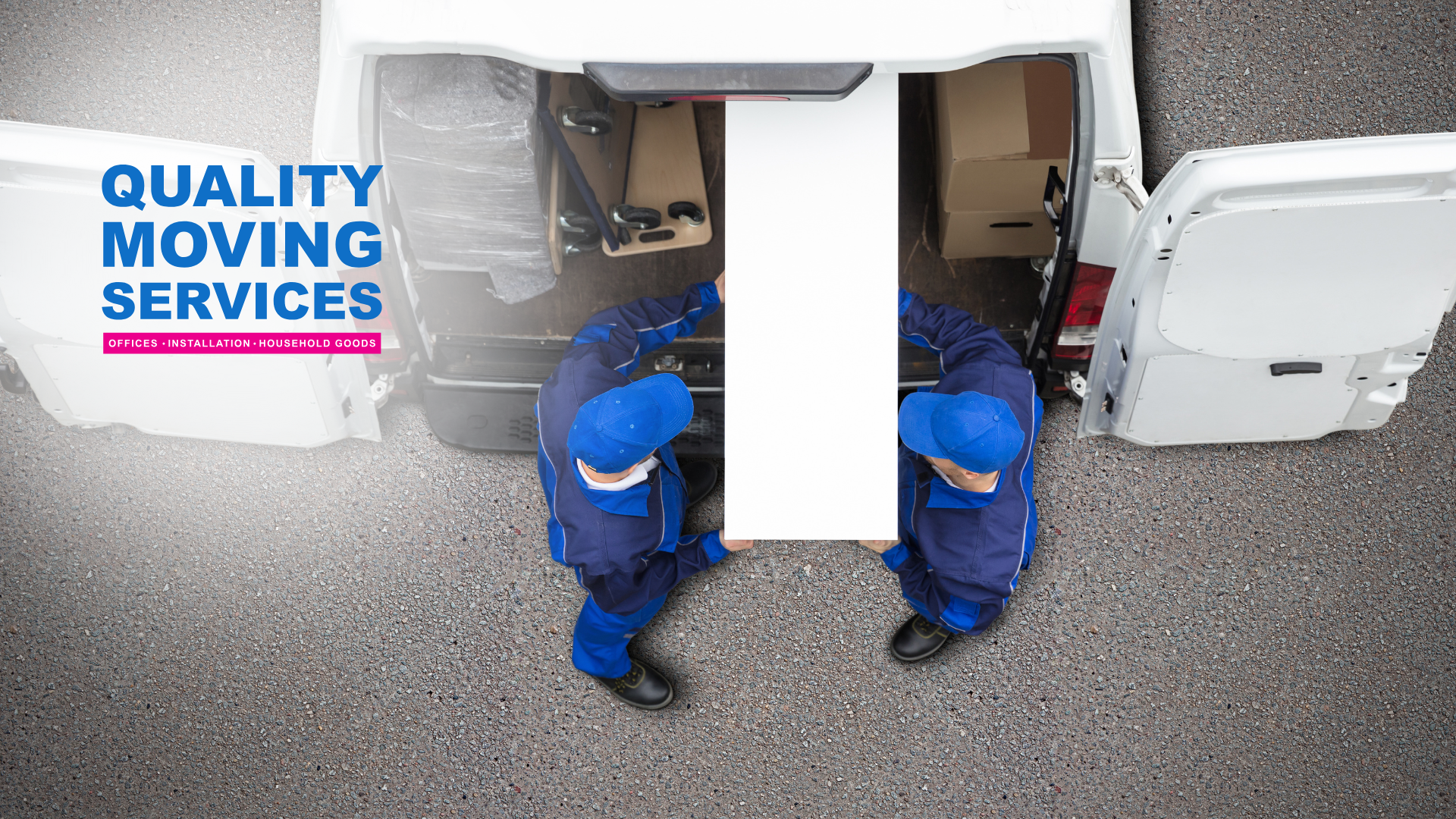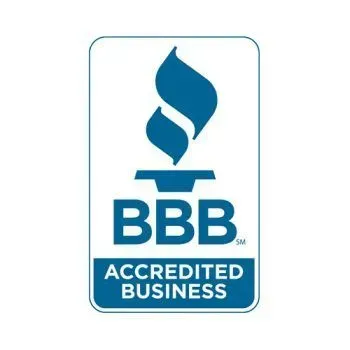How Do I Find The Best Local Movers?
Understanding Your Moving Needs
Assessing the Size and Scope of Your Move
Before you begin your search for the best local movers, it's crucial to have a clear understanding of what your move will entail. Assessing the size and scope of your move is the first step towards a successful relocation. Consider the volume of items you need to transport, the distance of your move, and any specific items that may require special attention.
- Inventory: List out all the items you plan to move.
- Distance: Note the mileage between your current home and the new location.
- Special Items: Identify items like pianos, antiques, or electronics that need special care.
By evaluating these factors, you can better communicate your needs to potential movers and ensure you receive accurate quotes. This assessment will also help you determine if you need additional services such as packing, storage, or special handling for delicate items.
Identifying Special Requirements
When planning your move, it's crucial to identify any special requirements that could impact the process. Consider the items that require special handling, such as pianos, antiques, or electronics, and ensure that the movers are equipped to deal with them. Additionally, think about access issues at your current or new location, like narrow staircases or a lack of elevators.
It's important to communicate these needs early on to avoid any last-minute complications and to ensure the safety of your belongings.
Here's a list of common special requirements to consider:
- Fragile or high-value items
- Large or bulky items
- Hazardous materials
- Items requiring disassembly
- Accessibility concerns at pickup or delivery locations
By identifying these factors ahead of time, you can discuss them with potential movers to find out if they can accommodate your needs and may affect the overall cost of the move.
Setting a Realistic Moving Budget
Establishing a realistic moving budget is crucial to avoid financial strain during your relocation. Consider all potential expenses to create a comprehensive budget that reflects the true cost of moving. Start by listing the obvious costs such as mover fees, packing supplies, and transportation. Don't forget to account for additional expenses like insurance, storage, and potential overnight stays.
It's important to set aside a contingency fund within your budget. Unexpected costs can arise, and having a financial cushion can help you manage these surprises without stress.
Here's a basic breakdown of potential moving expenses:
- Mover fees (including labor and truck rental)
- Packing supplies (boxes, tape, bubble wrap)
- Insurance and liability coverage
- Storage fees (if needed)
- Utility setup or transfer fees
- Cleaning services for your old or new home
- Hotel stays or meals if the move spans multiple days
By itemizing these costs, you can form a clearer picture of your financial needs and avoid the pitfall of underestimating the cost of your move. Remember to revisit and adjust your budget as you gather more information and receive actual quotes from movers.
Researching Local Movers
Seeking Recommendations and Reviews
When searching for 'local movers near me', it's crucial to tap into the collective knowledge of your community. Ask friends, family, and colleagues for their experiences with local moving companies to compile a list of potential candidates. Online platforms can also provide a wealth of information through customer reviews and ratings.
- Check social media groups for unfiltered opinions.
- Visit dedicated review sites for comprehensive feedback.
- Contact local real estate agents who often have insights into reputable 'commercial movers near me'.
Remember, a consistent track record of positive reviews is a strong indicator of a reliable local moving company.
While online reviews can be enlightening, it's important to approach them with a critical eye. Look for patterns in feedback, both good and bad, to gauge the true reputation of the movers. This due diligence will help ensure that you select a mover that can meet your specific needs and provide a stress-free relocation experience.
Evaluating Movers' Credentials and Experience
When choosing a local moving company, it's crucial to evaluate their credentials and experience to ensure they can handle your belongings with care and professionalism. Look for movers who are licensed and insured, as this provides a level of protection for your property during the move.
- Check for membership in professional organizations such as the American Moving and Storage Association (AMSA).
- Verify the company's track record with the Better Business Bureau (BBB).
- Ask for references from past customers to gauge satisfaction levels.
It's important to consider the length of time a mover has been in business. Long-standing companies often have a proven track record and a wealth of experience to handle various moving scenarios.
By taking the time to thoroughly vet movers, you can avoid many common issues and feel confident in your choice. Remember, a reputable mover will be transparent about their history and happy to provide evidence of their reliability.
Comparing Services and Quotes
Once you have a list of potential movers, it's crucial to compare their services and quotes to determine the best fit for your budget and needs. Not all moving services are created equal, and what one company includes in their standard package, another might charge extra for.
- Inquire about the specifics of what's included in the quote.
- Check for additional fees such as fuel surcharges or equipment rental.
- Ask about their policy on delays or changes in moving dates.
When comparing quotes, ensure that you are comparing apples to apples. The cheapest option may not always be the best if it comes with less protection or fewer services.
Remember to also consider the quality of service, as a slightly higher quote from a reputable mover could save you headaches in the long run. Take the time to read through customer feedback and understand the level of service each company is offering before making your final decision.
Ensuring a Smooth Moving Experience
Scheduling an In-Home Estimate
Once you've narrowed down your list of potential movers, the next step is to schedule an in-home estimate. This allows the movers to assess the volume and nature of items you're planning to move, providing you with a more accurate quote. Ensure that the estimate is as detailed as possible, covering all aspects of the moving process.
- Request estimates from multiple companies to compare.
- Ensure availability for the in-home estimate to show all items.
- Ask questions about the estimate's components and any additional fees.
An in-home estimate not only gives you a clearer idea of the moving costs but also provides an opportunity to interact with the moving company's representative. This interaction can offer valuable insights into the professionalism and reliability of the movers.
Discussing Insurance and Liability
When engaging with local movers, it's crucial to have a clear understanding of the insurance and liability policies they offer. Ensure that the movers provide adequate coverage for your belongings in case of damage or loss during the move. Different companies may offer various levels of protection, so it's important to discuss what is included in their standard package and what might require an additional fee.
- Full Value Protection: Your items are covered for their replacement value.
- Released Value Protection: Offers minimal coverage based on weight, not value.
- Third-Party Insurance: For items of extraordinary value, consider purchasing additional insurance.
Remember, the level of insurance you choose can greatly impact your peace of mind during the move. Opting for the highest level of coverage may cost more upfront, but it can save you from significant financial loss if an unexpected incident occurs.
Planning for Moving Day Logistics
When planning for moving day logistics, it's crucial to have a clear timeline and checklist to ensure everything goes smoothly. Create a detailed schedule that includes the arrival time of the movers, packing deadlines, and the departure time from your old home. This will help you manage your time effectively and avoid any last-minute rush.
- Confirm the moving date and time with the movers.
- Arrange for parking space for the moving truck.
- Prepare an essentials box with items you'll need on the first day.
- Ensure all boxes are properly labeled and inventoried.
Remember to keep important documents and valuables with you during the move. It's also wise to have a plan for pets and children to keep them safe and out of the way on moving day.
Avoiding Common Pitfalls
Beware of Lowball Estimates
When searching for local movers, you might encounter enticingly low estimates that seem too good to be true. Be cautious of these lowball offers, as they often indicate a lack of services or hidden fees that can surface later. It's important to understand that Quality Moving Services come at a cost, and unrealistically low quotes can be a red flag for potential scams or subpar service.
- Compare the average costs of reputable movers in your area.
- Question any estimate that is significantly lower than the average.
- Ensure that the estimate includes all potential charges.
Remember, a legitimate moving company will provide a comprehensive and transparent quote that reflects the true scope of your move. Avoid the temptation of a low price at the expense of reliability and professionalism.
Understanding the Fine Print
When selecting a local moving company, carefully reviewing the contract's fine print is crucial. It's where you'll find details about the mover's responsibilities, your rights, and any additional fees that might not be immediately apparent.
- Look for clauses related to payment terms, such as deposits and refund policies.
- Check the service level agreements for timelines and what happens if the move is delayed.
- Understand the liability coverage for lost or damaged items.
Ensure you're aware of any potential extra charges, like for heavy items or long carry services, which can significantly affect your final bill.
Always ask questions if something is unclear and consider having a legal professional review the agreement if you're not comfortable with legal jargon. This due diligence will help protect you from unexpected costs and disputes.
Preparing for Unexpected Challenges
Even with meticulous planning, moving day can bring unforeseen challenges. Being prepared for these potential hiccups can make all the difference. Unexpected weather conditions, delays, or last-minute changes in logistics can add stress to your move. To mitigate these risks, consider the following steps:
- Keep an emergency kit handy with essentials like flashlights, batteries, and first-aid supplies.
- Have a backup plan for childcare or pet care in case the move takes longer than anticipated.
- Ensure you have access to additional funds or credit for unexpected expenses.
It's crucial to maintain flexibility and have a contingency plan. Communicate with your movers about potential scenarios and how they would handle them. This can help set realistic expectations and provide peace of mind.
Remember, the goal is to transition to your new home with as little disruption as possible. By anticipating and preparing for the unexpected, you can maintain control and minimize the impact of any surprises on moving day.
Post-Move Considerations
Handling Disputes and Damages
Even with the best planning, disputes and damages can occur during a move. It's crucial to know how to navigate these issues effectively to ensure your rights and possessions are protected. Here's a brief guide on handling these situations:
- Document everything: As soon as you notice any damage, document it with photos and detailed notes. This will be essential for any claims you file.
- Review your contract: Understand the mover's liability and your insurance coverage. This information is typically outlined in your contract.
- Contact the movers immediately: Report any issues to the moving company as soon as possible to initiate the dispute resolution process.
Remember, clear communication and prompt action can significantly improve the resolution of disputes and damages. Keep all correspondence with the moving company in writing, and maintain a record of all communications.
If you find yourself in a situation where the moving company is unresponsive or unwilling to resolve the issue, you may need to escalate the matter. This could involve filing a complaint with a consumer protection agency or seeking legal advice. The goal is to reach a fair resolution that compensates for any loss or damage you've incurred.
Leaving Reviews for Future Movers
After the dust has settled and your belongings are neatly unpacked, taking a moment to leave a review for your movers can be incredibly beneficial for both the moving company and future customers. Your honest feedback provides valuable insights that can help movers maintain high standards and assist others in making informed decisions.
- Reflect on the overall service quality
- Mention any specific staff members who provided exceptional service
- Be honest about any issues that arose and how they were handled
Remember, your review can be a guiding light for someone in the midst of a stressful move.
By sharing your experience, you contribute to a larger community dialogue that holds movers accountable and celebrates those who go above and beyond. It's a small act that can have a significant impact.
Unpacking and Settling In
Once the movers have left and you're standing amidst a sea of boxes, the real challenge begins: unpacking and settling into your new home. It's important to approach this process with a plan to make it as smooth and stress-free as possible.
- Start by unpacking essentials like bedding, toiletries, and basic kitchen items.
- Next, tackle one room at a time, beginning with the spaces you'll use most frequently.
- Break down and recycle boxes as you go to keep your space clear and manageable.
Remember, it's not a race. Take the time to thoughtfully organize and decorate your new space. This is an opportunity to declutter and consider what items truly deserve a place in your home.
As you settle in, keep a list of any items that may have been lost or damaged during the move. Addressing these issues early on will help you feel more at home and ensure that you're fully compensated if you need to file a claim with the moving company.
Frequently Asked Questions
How do I assess the size and scope of my move to find the best local movers?
To properly assess the size and scope of your move, you should create an inventory of all items you plan to move, categorize them by room and size, and consider factors such as the distance of the move, the level of service you require (full-service, self-pack, etc.), and any special handling needed for delicate or oversized items.
What should I look for when identifying special requirements for my move?
When identifying special requirements, consider whether you have fragile items, antiques, large or heavy objects like pianos, or items that need disassembly. Also, think about access issues at your current or new location, such as narrow stairs, elevators, or the need for parking permits for moving trucks.
How do I set a realistic moving budget?
A realistic moving budget should include all potential costs such as mover fees, packing materials, insurance, storage, and any additional services like furniture disassembly. Get quotes from multiple movers to compare prices and ensure you account for unexpected expenses.
What are some tips for researching and evaluating local movers?
Seek recommendations from friends and family, read online reviews, and check movers' credentials, such as their USDOT number for compliance with safety regulations. Evaluate their experience, ask for references, and compare written estimates for services and costs.
What are the key considerations when scheduling an in-home estimate?
For an in-home estimate, ensure the moving company sends a representative to assess your belongings in person. Provide them with detailed information about your move, ask about their method for calculating costs, and discuss any potential additional fees or services.
How should I prepare for moving day to ensure a smooth experience?
To prepare for moving day, confirm all details with your movers in advance, including date, time, and services. Pack and label your boxes clearly, arrange for children and pets to be cared for, and have a plan for the placement of items in your new home to expedite the unloading process.
©2024 Quality Moving Services All Rights Reserved.

















